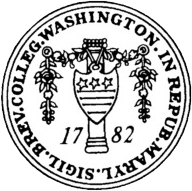Washington College, established in 1782, is a storied institution nestled in the charming town of Chestertown, Maryland. With its scenic campus spanning over 112 acres, the college boasts a close-knit academic community, catering to approximately 1,200 full-time undergraduates. This private, liberal arts college is steeped in history, as the first college chartered in the sovereign United States, named after President George Washington who also served on its original governing board and was a significant benefactor.
One of the standout features of Washington College is its unique approach to learning, which is evident in programs like the Eastern Shore Food Lab. This innovative hub explores sustainable food practices by tapping into the rich biodiversity of the Chesapeake Bay area. The college also emphasizes hands-on learning, notably through the Center for Environment & Society, which provides students with opportunities to engage in real-world environmental challenges. Furthermore, its signature "Comegys Bight Fellows Program" offers students high-level internships and research experiences, ensuring practical engagement beyond the classroom.
Washington College has earned accolades for its positive contributions both within academia and the broader community. The college's strong commitment to environmental sustainability is reflected in various initiatives and accolades, including the campus-wide commitment to achieving carbon neutrality. Additionally, its small class sizes foster an environment where students receive personalized attention, contributing to a supportive learning experience. Alumni of Washington College have gone on to excel in fields like literature, politics, and science, evidence of the institution's focus on nurturing future leaders and innovators.
Despite these achievements, Washington College faces challenges like many small liberal arts colleges. Adapting to the ever-changing landscape of higher education, including fluctuations in enrollment and securing financial resources for continuous improvement, are perennial issues. Moreover, the college must ensure that it remains relevant and appealing to a diverse new generation of students while honoring its historical legacy. Maintaining the delicate balance between tradition and innovation continues to be an ongoing process for Washington College as it strives to provide a well-rounded education in the 21st century.



